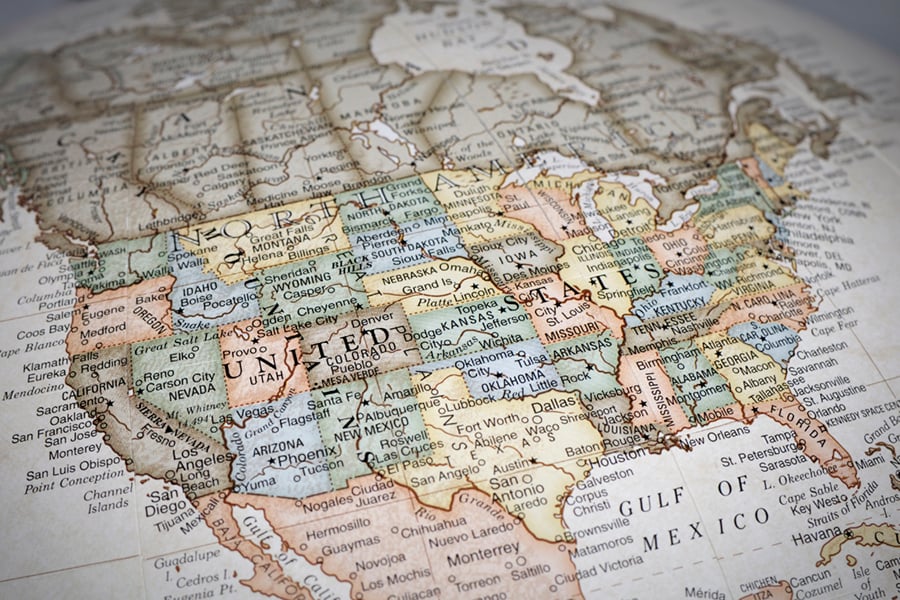

In some states, just over 3% of savers who lose track of their retirement accounts see their funds returned within two years – but that figure is as high as 67% in one state, according to a recent paper on state unclaimed property practices.
The low figure pertains to Massachusetts, which requires account owners to initiate the process of reclaiming assets that have been turned over to the state. The higher figure is from Wisconsin, which uses Social Security numbers to automatically match “missing” accounts with their owners, according to the paper, published by the University of Wisconsin-Madison’s Center for Financial Security.
“This process started in June 2015 and is rare among states; it is known as the ‘Wisconsin model’ in the unclaimed property community,” wrote the paper’s authors, Anita Mukherjee and Corina Mommaerts. “The procedures result in stark differences in claim rates: in Massachusetts only 3.4% of unclaimed retirement accounts reported in 2016 were claimed within two years, whereas in Wisconsin, 67% of accounts are claimed in that same timeframe.”
The authors defined unclaimed accounts as those that have been dormant for at least two years and did not have a minimum required distribution taken by the owner after he or she turned 70½.
Prior research by the same authors found an estimated $38 million in unclaimed retirement assets across 70,000 accounts in 2016.
Account size appears to play a role in whether the owner initiates a claim to get the assets back from a state, according to the paper. In Massachusetts, for example, the average size of a missing account that is claimed was $2,110 in 2016, versus an average of $581 for unclaimed accounts.
Wisconsin’s program, however, has seen a different result — the average account size was smaller for assets that were reclaimed, at $960 versus $1,315, according to the paper.
Part of the reason that accounts go missing is that they are not consolidated with people’s other retirement accounts. And that appears to be a result of the default nature of defined-contribution plans, which often automatically enroll participants, some of whom may be totally unaware they have an account. Difficulty with rollovers could also be partly to blame, the authors noted.
Given that most states do not automatically notify account owners about dormant accounts, that is a big problem.
“The Massachusetts data is likely to be more representative of the country as most states are unable to use Social Security numbers to match unclaimed funds with their owners,” the paper read. “With this view, the vast majority of unclaimed retirement funds remain unclaimed even after decades of being escheated to the state.”
Sen. Elizabeth Warren, D.-Mass, for years has cosponsored a bill that would establish a national “lost and found” system for retirement accounts. Such a system is necessary as about 30% of workers have account balances with former employers, according to data from TIAA cited by Warren’s office.
In addition, the median job tenure of people who are 25 to 34 years old is less than three years, meaning that many people accumulate small account balances with multiple employers, an announcement of 2020 bill stated. And small account balances can be eroded over time by administrative fees.
The bill would allow employers to more easily move separated workers’ plan assets into target-date funds, if those workers don’t specify what they want to do with balances of less than $5,000. Assets could also be transferred to the Treasury, which would establish individual accounts for the owners. Accounts with less than $1,000 in assets that are distributed but never cashed could similarly be transferred, according to the legislation.
The Senate bill and a companion bill in the House both failed to get out of committee last year.
The Department of Labor has also sought to limit the number of missing accounts. Last month, the regulator issued long-awaited guidance on steps plan sponsors should take to identify missing participants and get in touch with them. That can include contacting next of kin or reaching out to former employees on social media, if an employer has otherwise lost contact with a participant who has assets in the company’s plan.

Executives from LPL Financial, Cresset Partners hired for key roles.

Geopolitical tension has been managed well by the markets.

December cut is still a possiblity.

Canada, China among nations to react to president-elect's comments.

For several years, Leech allegedly favored some clients in trade allocations, at the cost of others, amounting to $600 million, according to the Department of Justice.
Streamline your outreach with Aidentified's AI-driven solutions
This season’s market volatility: Positioning for rate relief, income growth and the AI rebound
